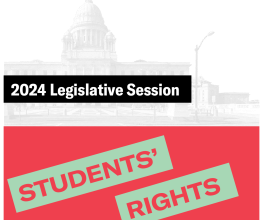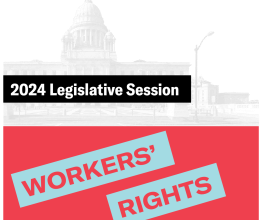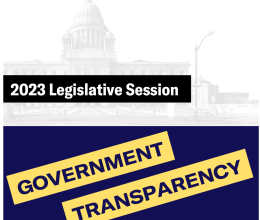Less than two weeks after Governor Donald Carcieri announced layoffs of four interpreters from the Department of Human Services (DHS), the RI ACLU today revealed that DHS is bound by a consent agreement with the federal government to “schedule interpreters or bilingual staff when necessary” to communicate with clients who have limited English proficiency (LEP), and to have procedures in place “permitting timely and effective telephone communication between LEP persons and DHS staff.”
The layoff of all three staff interpreters for the Southeast Asian community, as well as one of only two Portuguese interpreters, raises serious questions about the Department’s ability to comply with the agreement, the ACLU said today. The ACLU also said that recent public comments of the Governor objecting to any state-funded interpreters at the agency casts doubt on his commitment to acting in accordance with federal civil rights laws on the subject.
The 1997 agreement between DHS and the Office of Civil Rights of the U.S. Department of Health and Human Services addressed complaints alleging that DHS’ inadequate services for LEP clients violated federal civil rights laws. The agreement requires DHS to abide by a number of obligations in addition to those noted above, including training of DHS managers and staff on LEP issues, and displaying notices in various languages in DHS offices about clients’ rights to interpreter services.
Last month, the Governor publicly railed against the availability of state-funded language interpreters to help people in the courts and other state agencies, and particularly at DHS. At the time, twenty-two organizations criticized the Governor’s statements for “feed[ing] into the xenophobic atmosphere that permeates the immigration debate in our state.”
RI ACLU executive director Steven Brown said today: “Although the Governor has since acknowledged the state’s legal obligation to provide court interpreters, he failed to note that, for decades, federal law has also required the state to supply interpreters in other administrative settings, including for clients at DHS. Interpreters are required in order to ensure that non-English speakers have equal access, in a timely manner, to the critical benefits offered by that agency. His comments make light of both the consent agreement, which he never acknowledged but has a legal obligation to abide by, and the civil rights law underlying it. Aiming his layoffs at the Southeast Asian community seems particularly cruel, since many members of that community are here as refugees, often after having helped the United States military, at great risk to themselves, in the Vietnam War.
“Federal law requires that recipients of federal funds provide language interpreters for people seeking public benefits for the same reason they are provided in courtrooms and for the same reason that sign language interpreters are provided for the hearing-impaired – as a matter of fundamental fairness. By laying off these interpreters and hoping to rely on contracted services instead, DHS is unlikely to save much money, but very likely to impose significant burdens on Southeast Asian and Portuguese clients who are in need of services during emergency situations.”
Brown said that the ACLU will be gathering information to consider filing a formal discrimination complaint with the federal Office of Civil Rights in light of the layoff notices.







